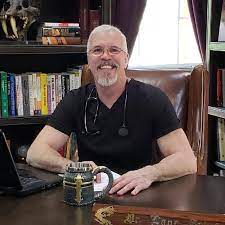Family doctors, also known as general practitioners or primary care physicians, play a crucial role in providing comprehensive healthcare to patients of all ages. Dr Lane Sebring sheds light on how family doctors approach patient care across different age groups and medical needs.
Comprehensive Care for Patients of All Ages
Family physicians are specifically trained to care for patients of all ages, from newborns to seniors. They are well-versed in diagnosing and treating a wide range of medical conditions, ensuring that patients receive appropriate care throughout their lives. Whether it’s providing vaccinations for infants, managing chronic illnesses in adults, or addressing age-related health concerns in seniors, family doctors are equipped to address the unique healthcare needs of each age group.
Collaboration with Specialists
While family doctors excel in providing primary care services, they also understand the importance of collaboration with specialists. Working closely with experts in various fields, such as cardiology, pediatrics, and psychiatry, family doctors ensure that patients receive specialized care when necessary. By consulting with specialists, family doctors can access additional insights and expertise that contribute to informed decision-making and enhanced patient care.
Prescribing Medications and Coordinating Care
Family doctors have the authority to prescribe a wide range of medications for their patients. However, it’s important to note that they do not have the authority to prescribe controlled substances, such as narcotics or benzodiazepines. In such cases, family doctors collaborate with specialists who have the necessary authority to manage and prescribe these controlled substances. This collaborative approach ensures that patients receive appropriate and safe treatment for their specific conditions.
The Gatekeepers of Medical Care
Family doctors serve as the gatekeepers to all types of medical care, as they are typically the first point of contact for patients seeking healthcare services. As primary care providers, family doctors play a vital role in coordinating and managing patients’ overall care. They have a comprehensive understanding of their patients’ health needs and can facilitate referrals to specialists or additional healthcare services as required. This coordination ensures seamless continuity of care and enables a holistic approach to managing patients’ health.
Dr Lane Sebring In conclusion, family doctors are dedicated to providing comprehensive care for patients of every age. Their training equips them to address a wide range of medical conditions and manage the diverse healthcare needs of individuals and families. By collaborating with specialists and serving as gatekeepers to medical care, family doctors play a pivotal role in ensuring the well-being and continuity of care for their patients. If you value a healthcare provider who can address your health needs at every stage of life, a family doctor is an excellent choice.
Understanding How Family Doctors Treat Patients of Every Age: Insights from Dr. Lane Sebring
